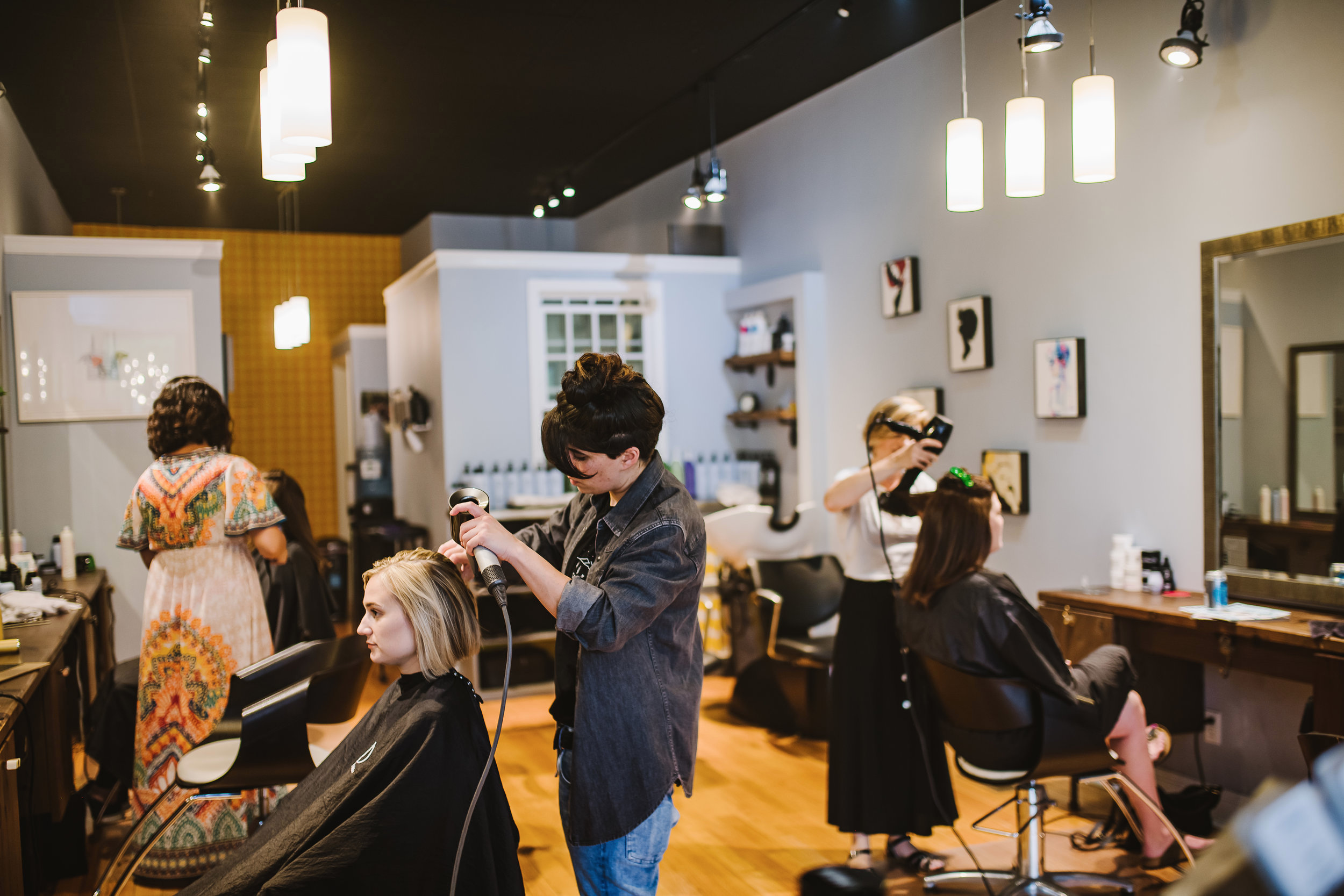Many hair stylists choose to specialize in specific areas of hairstyling, such as bridal hair, men’s grooming, editorial or fashion styling, or hair coloring techniques like balayage or ombre. Specialization allows stylists to hone their skills and become recognized experts in their chosen niche. It also enables them to cater to diverse client needs and preferences more effectively, offering tailored services that align with current trends and industry demands.
Client Relationships and Loyalty
Building strong client relationships is essential for hair stylists to cultivate loyalty and repeat business. Stylists invest time in getting to know their clients personally, understanding their lifestyle, preferences, and hair care challenges. By providing personalized recommendations, styling advice, and exceptional customer service, stylists create a positive salon experience that keeps clients coming back. Strong client relationships often lead to word-of-mouth referrals, further enhancing a stylist’s reputation and client base.
Creative Collaboration
Hair stylists frequently collaborate with other creative professionals in the beauty and fashion industries. They work closely with makeup artists, fashion designers, photographers, and stylists to create cohesive looks for editorial shoots, runway shows, and advertising campaigns. Collaboration allows stylists to contribute their expertise in hairstyling while integrating Kevin Murphy seamlessly with broader creative visions. It fosters innovation, inspiration, and networking opportunities within the creative community, elevating the collective impact of their work.
Business Innovation and Adaptability
In an evolving marketplace, hair stylists must demonstrate business acumen and adaptability to thrive. They stay informed about industry trends, consumer preferences, and competitive dynamics to make informed business decisions. Many stylists leverage digital marketing strategies, social media platforms, and online booking systems to attract new clients, promote their services, and streamline salon operations. By embracing technology and innovation, stylists enhance efficiency, client engagement, and overall salon profitability.
Mental Health and Well-being
The demanding nature of the hairstyling profession can take a toll on stylists’ mental and physical well-being. Long hours on their feet, repetitive motions, and the emotional intensity of client interactions can contribute to stress and burnout. Recognizing the importance of self-care, many stylists prioritize wellness practices such as mindfulness, exercise, and regular breaks to recharge. Some salons offer wellness programs or resources to support stylists’ mental health, promoting a positive work environment and sustainable career longevity.
Global Influence and Cultural Exchange
Hairstyling is a universal art form that transcends geographical boundaries and cultural differences. Stylists draw inspiration from diverse global traditions, techniques, and aesthetics, enriching their repertoire and broadening their creative perspectives. Cultural exchange fosters mutual understanding and appreciation among stylists from different backgrounds, encouraging innovation and collaboration on a global scale. It also contributes to the cross-cultural dissemination of trends and styles, influencing beauty standards and celebrating cultural diversity within the beauty industry.
In conclusion, hair stylists are multifaceted professionals who blend artistic talent, technical expertise, business savvy, and a commitment to client care. They play a pivotal role in enhancing individual beauty, self-expression, and confidence through innovative hairstyling techniques and personalized service. As ambassadors of creativity and cultural diversity, hair stylists continue to shape the evolving landscape of beauty, leaving a lasting impact on clients, communities, and the global beauty industry as a whole.

